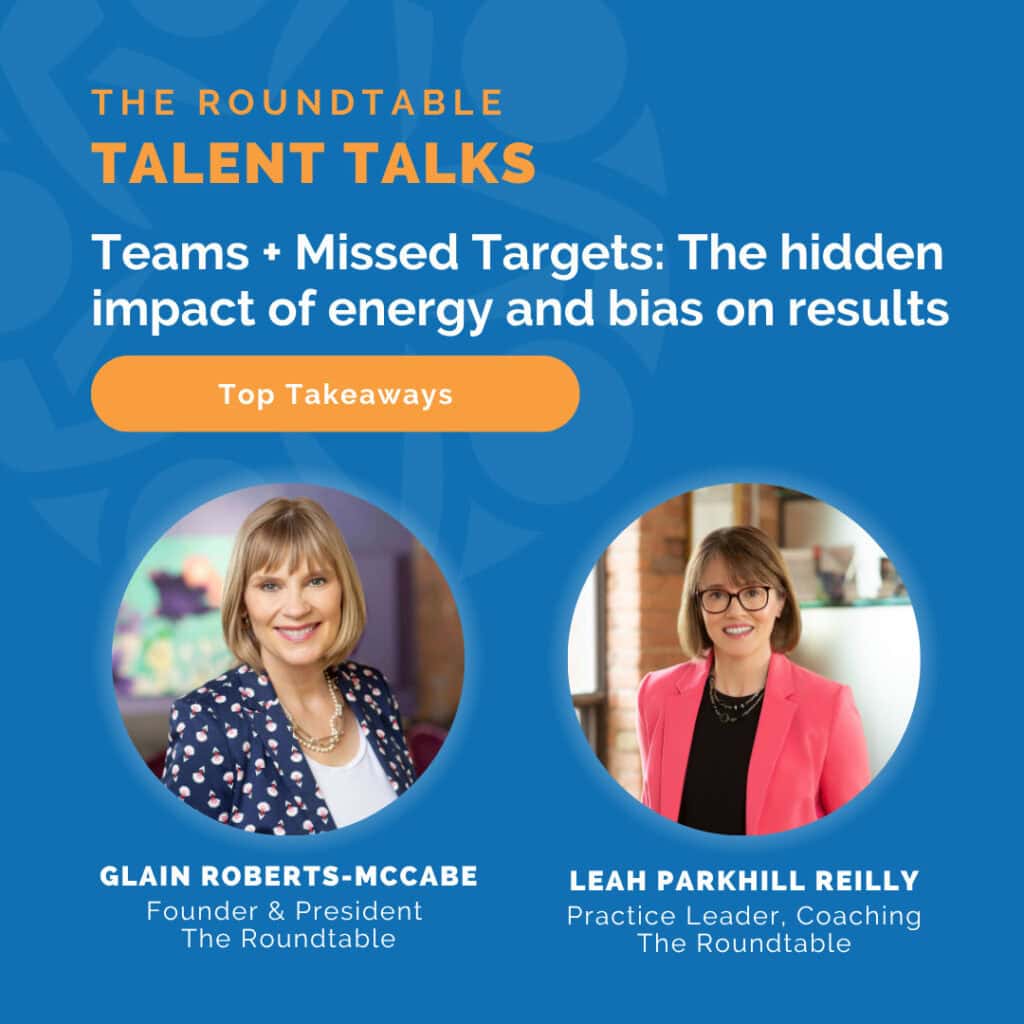At The Roundtable, we’re always looking for ways to help senior talent professionals and team leaders elevate their impact. As part of our Talent Talks webinar series, we recently took a deep dive into a topic that’s often overlooked but massively influential: the role of motivational energy in team performance.
Using a real-life team case and the Individual Directions Inventory™ (IDI)—a powerful assessment that measures 17 dimensions of motivational energy—we unpacked how the energy dynamics within a team, and between the team and its leader, can either accelerate or derail progress toward goals.
If you’re exploring how to unlock greater energy and alignment in your team (or a team you support), here are three key considerations to think through before diving in:
- Gauge Team Readiness: Working with energy dynamics goes deep. To really get the value from this kind of work, team members need to have a baseline of self-awareness and trust. Psychological safety, a strong feedback culture, and a shared growth mindset are non-negotiables. If those conditions are in place, the IDI can spark incredible insight and unlock untapped performance potential.
- The Leader Brings the Weather: At The Roundtable, we often say: “Leaders bring the weather.” Your mood, focus, and personal energy shape everything—from the team’s morale to their results. With motivational energy, this becomes even more important. A leader’s dominant energy patterns will naturally set the direction. When energy flows, focus follows.
Tip: Equip team leaders with the insight and coaching support they need to understand both the strengths and blind spots in their energy profile. This enables them to intentionally calibrate their leadership to better support their teams.
- Team Energy Can’t Be Outsourced: In our case study, the leader made a classic mistake: handing off team development to HR. Let’s be clear—team development is a leader’s job. HR and Talent partners are amazing allies, but they’re not the ones accountable for team performance.
If you’re planning team coaching or development work, the team leader must be actively engaged—not sitting on the sidelines. Great teams are built by leaders who invest their own time, energy, and intention into creating the conditions for success.
If you’re curious about how we help teams build stronger foundations in areas like accountability, conflict, decision-making, and psychological safety, check out our structured team development programs or send us a note. We’d love to support you.
And if you’re a coach or senior talent leader looking to add the IDI assessment to your toolkit, we offer on-demand certification as well as custom in-house options. Reach out at groberts@goroundtable.com and we’ll find the right path for you.
Looking for more practical tools to boost your team’s energy, clarity, and trust? Sign up for our free Team Coaching Micro Course—it’s packed with actionable insights you can start using right away.
Coming Up Next:
Join us for our next Ask the Expert session, featuring three incredible panelists who will share real-world strategies for building inclusive leadership cultures. It’s the perfect conversation to kick off Pride Month and reflect on what it means to foster belonging for all.
Until then—
Happy leading,
Glain Roberts-McCabe
P.S. Enjoyed the webinar? Share it with a friend! We’re building a community of forward-thinking talent leaders who want to have the conversations that matter most.




